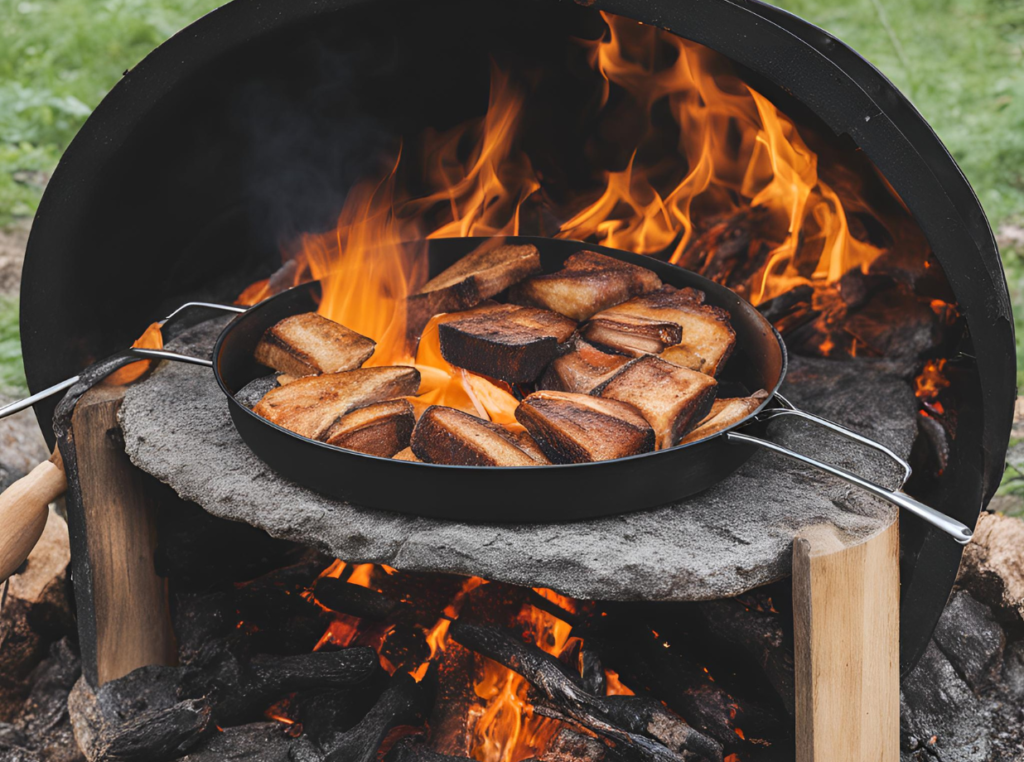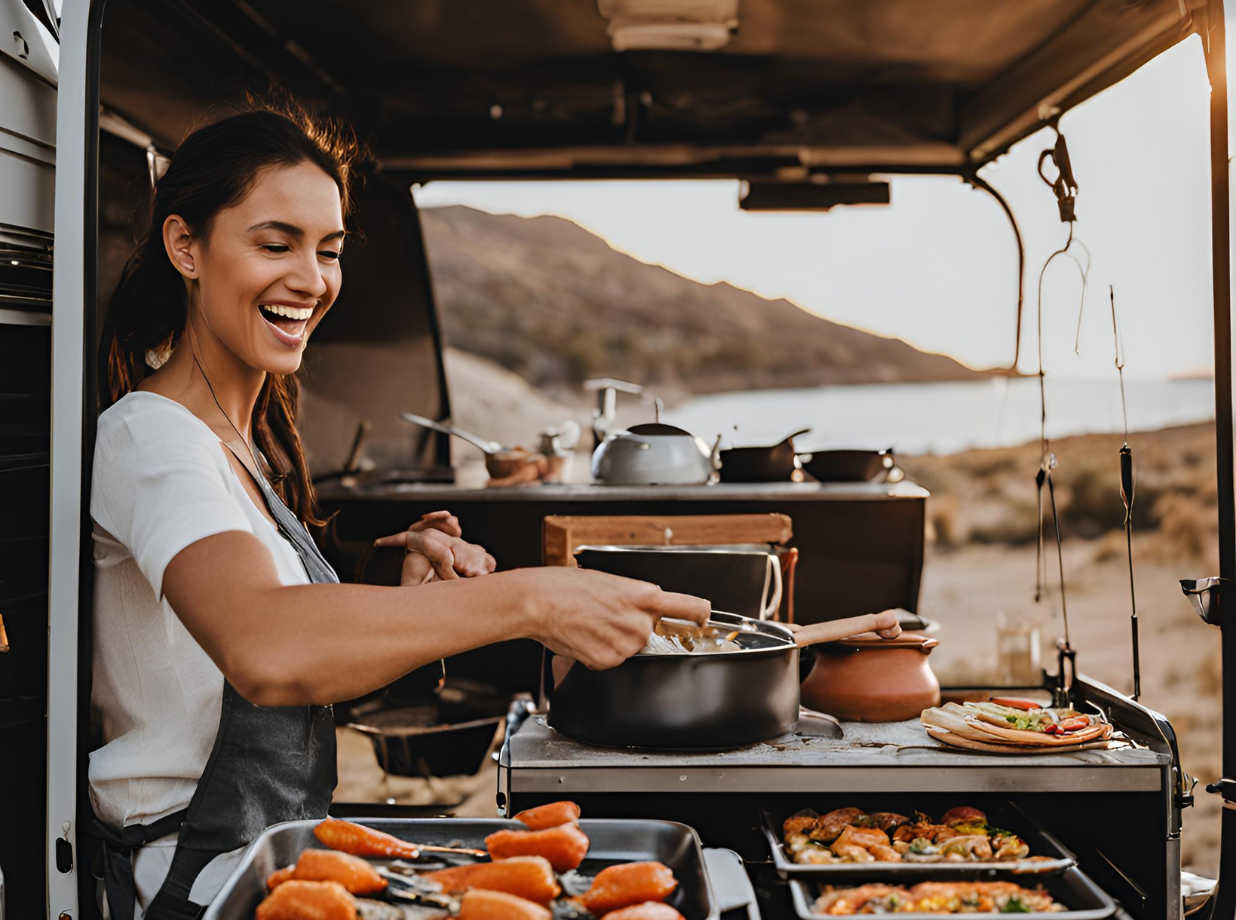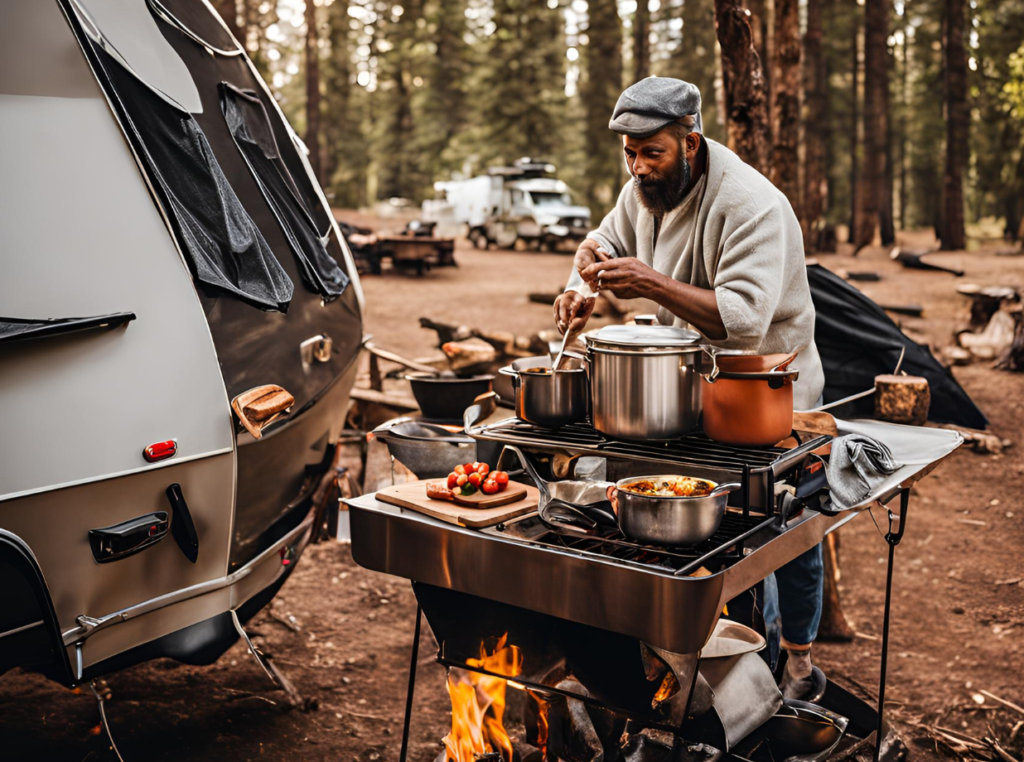Have you ever considered the environmental impact of your outdoor cooking while on an RV trip? Often overlooked in the excitement of planning meals and cooking under the stars, the ecological footprint of our culinary practices can be significant. As RV travel gains popularity, understanding how to cook sustainably in the great outdoors is more essential than ever. This article provides a comprehensive guide on eco-friendly tips for RV outdoor cooking, leveraging expert advice and supported by relevant statistics.
Understanding the Impact of Outdoor Cooking
RV travel offers an unparalleled opportunity to connect with nature. However, the convenience of modern amenities, including outdoor cooking setups, can lead to unintended environmental consequences. Understanding these impacts is the first step in making eco-friendly choices.
Carbon Footprint of Cooking
Cooking contributes to carbon emissions, primarily through fuel consumption. According to the Environmental Protection Agency (EPA), cooking accounts for approximately 4% of total household energy use, translating to significant emissions when scaled up to the RV community.
Waste Generation
Outdoor cooking can generate waste in various forms such as packaging materials, uneaten food, and disposable utensils. The U.S. Department of Agriculture (USDA) estimates that food waste alone accounts for 21% of all landfill content, contributing to methane emissions as it decomposes.
Choosing Eco-Friendly Cooking Equipment
The type of equipment you use can drastically affect your environmental footprint. Here are some options to consider for eco-friendly RV outdoor cooking.
Portable Solar Ovens and Cookers
Solar ovens and cookers harness the power of the sun, offering a renewable and virtually limitless energy source. They eliminate the need for fossil fuels and reduce carbon emissions. Solar Cookers International reports that using solar cookers can save up to 1 ton of CO2 emissions per year for an average household.
Efficient Camping Stoves
Choose camping stoves that are designed for high fuel efficiency. Models with built-in wind barriers and advanced burners can significantly reduce fuel consumption. Backpacker Magazine suggests opting for stoves with a high BTU (British Thermal Unit) rating for better efficiency.
Rechargeable Electric Grills
Rechargeable electric grills can be powered by solar panels or eco-friendly generators. While they might require a higher initial investment, the long-term benefits include reduced fuel costs and lower emissions.
Sustainable Cooking Practices
Meal Planning and Preparation
Proper meal planning minimizes food waste and ensures you use ingredients mindfully. Create a menu that leverages perishable items sooner and incorporate versatile ingredients that can be used in multiple recipes.
Local and Organic Ingredients
Opt for locally-sourced and organic ingredients whenever possible. This not only supports local economies but also reduces the carbon footprint associated with transporting food over long distances. The U.S. Department of Transportation reports that food travels an average of 1,500 miles from farm to table.
Reduced Water Use
Water conservation is crucial, especially when camping in areas with limited water resources. Use minimal water for cleaning and cooking. Opt for water-efficient appliances and adopt practices such as soaking cookware immediately after use to make cleaning easier and less water-intensive.

Waste Management and Recycling
Handling waste properly is imperative for eco-friendly outdoor cooking. Improper waste management can attract wildlife, contribute to pollution, and degrade natural environments.
Proper Disposal of Cooking Waste
Dispose of food scraps and cooking waste in designated receptacles. Avoid burning waste as it can release harmful chemicals and contribute to air pollution.
Composting
Composting is an effective way to handle organic kitchen waste. Portable compost bins are available and can turn food scraps into nutrient-rich soil. According to the EPA, composting can reduce landfill waste and lower greenhouse gas emissions.
Recycling
Ensure that recyclable materials such as cans, bottles, and packaging are properly cleaned and sorted. Use collapsible bins to manage recycling efficiently in limited RV space. Many campgrounds and parks offer recycling services; take advantage of these programs to reduce your environmental footprint.
Eco-friendly Cooking Techniques
Certain cooking techniques can minimize energy use and waste, contributing to a more sustainable outdoor cooking experience.
One-Pot Meals
One-pot meals are convenient and eco-friendly, reducing the number of pots and pans that need to be cleaned. This method conserves water and minimizes fuel use.
| Benefit | Details |
|---|---|
| Fuel Efficiency | Requires less energy to cook everything in one pot. |
| Water Use | Fewer dishes to wash means less water needed for cleanup. |
| Time Savings | Simplifies cooking and cleaning processes. |
Cold Meals
Incorporate cold meals into your menu to minimize energy use. Salads, sandwiches, and wraps are nutritious, easy to prepare, and don’t require cooking fuel.
Batch Cooking
Batch cooking, or preparing multiple meals in one cooking session, reduces overall fuel consumption. Store leftovers in reusable containers and reheat as needed. This method is particularly useful for longer RV trips where meal planning can help reduce food waste and time spent cooking daily.
Eco-friendly Clean-up Strategies
Clean-up is an integral part of outdoor cooking and can significantly impact your environmental footprint.
Biodegradable Soaps
Use biodegradable soaps for dishwashing to ensure that any runoff does not harm local ecosystems. These soaps break down naturally and are less likely to pollute water sources.
Reusable Dishware and Utensils
Opt for reusable dishware and utensils instead of disposables. Not only does this reduce waste, but it also saves money in the long run. Look for durable materials such as stainless steel or bamboo.
Minimal Water Waste
Adopt dishwashing techniques that minimize water waste. Use spray bottles to pre-rinse dishes or clean them with damp cloths before a full wash. Collect and reuse rinse water for tasks like extinguishing campfires or watering plants.
Safe and Eco-Friendly Fire Practices

Campfires are a traditional part of the outdoor cooking experience, but they must be managed responsibly to minimize their environmental impact.
Fire Rings
Use established fire rings to contain campfires. Building new fire rings disrupts the soil and can harm local flora and fauna.
Sustainable Firewood
Collect firewood responsibly. Use dead and downed wood or purchase certified sustainable firewood. Avoid transporting firewood between regions to prevent the spread of pests and diseases, as highlighted by the U.S. Forest Service.
Efficient Fire Use
Build small, efficient fires that use less wood and produce less smoke. Follow the Leave No Trace principles by ensuring fires are completely extinguished before leaving the campsite.
Leveraging Technology for Sustainable Cooking
Modern technology offers various tools and resources to support eco-friendly outdoor cooking.
Mobile Apps
Several mobile apps can assist with meal planning, recipe management, and sustainable cooking practices. Apps like Zero Waste Chef and Seasonal Food Guide provide tips for reducing food waste and selecting in-season ingredients.
Energy Monitors
Portable energy monitors can help track the energy consumption of your cooking equipment. By understanding which appliances are most energy-intensive, you can make informed decisions and optimize your energy use.
Eco-Friendly Generators
If you rely on generators for power, opt for eco-friendly models that use renewable energy sources such as solar panels or wind turbines. The California Air Resources Board (CARB) offers a list of certified low-emission generators that can reduce your carbon footprint.
Community and Education
Educating yourself and others about sustainable practices is key to promoting eco-friendly outdoor cooking.
Workshops and Courses
Participate in workshops or courses on sustainable cooking and camping. Organizations like the Leave No Trace Center for Outdoor Ethics offer educational resources and training to promote environmental stewardship.
Join Eco-Friendly Groups
Join online forums or community groups focused on sustainable RV travel. Sharing experiences and tips can provide valuable insights and foster a sense of community. Platforms like Facebook and Reddit host active groups where members discuss eco-friendly practices and share advice.
Government and Institutional Support
Government initiatives and institutional support play a significant role in promoting sustainable outdoor cooking practices.
National Park Services
The National Park Service offers guidelines and regulations for eco-friendly camping and cooking. Familiarize yourself with these rules before visiting parks to ensure compliance and minimize your environmental impact.
Incentive Programs
Take advantage of incentive programs for eco-friendly products and practices. Some states offer rebates or tax credits for purchasing energy-efficient appliances or renewable energy sources. Check with local government websites for available programs and eligibility.
Support for Research
Support research and development of sustainable camping technologies by contributing to or participating in initiatives led by environmental organizations. Advancements in eco-friendly equipment and practices often rely on public support and funding.
Conclusion
Eco-friendly RV outdoor cooking is not only beneficial for the environment but also enhances your overall camping experience by fostering a deeper connection with nature. By understanding the impact of your cooking practices, choosing sustainable equipment, and adopting eco-friendly habits, you can significantly reduce your environmental footprint.
Educational efforts, community involvement, and government support further amplify these sustainable practices, creating a collective movement towards a greener future. Now, the next time you plan an RV trip, you’ll be well-equipped with the knowledge and tools to cook delicious meals while preserving the natural beauty of your surroundings.


